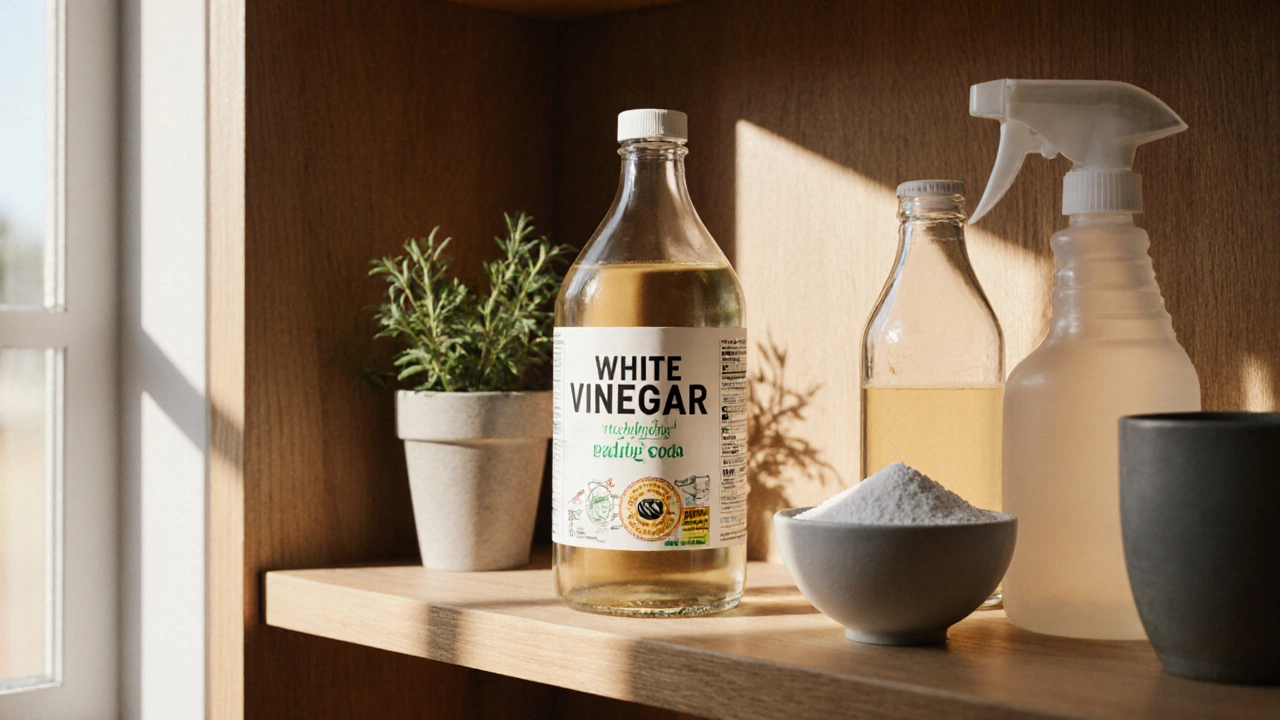Sustainable Household Cleaner
When choosing a sustainable household cleaner, a cleaning product made from renewable, non‑toxic ingredients that protect your home and the planet. Also known as green home cleaner, it replaces harsh chemicals with safer alternatives.
One of the most popular natural ingredients is vinegar, a mild acid that cuts grease, removes stains, and kills many germs without leaving harmful residues. Pair that with eco‑friendly cleaning solutions, formulations that use biodegradable surfactants and plant‑based solvents, and you have a powerful, low‑impact cleaning system. These biodegradable cleaning agents, products that break down naturally after use, ensuring they don’t pollute waterways or soil, are the backbone of any truly sustainable routine.
Why Choose Sustainable Cleaning?
Sustainable household cleaners encompass biodegradable cleaning agents that decompose quickly, reducing waste in landfills. They require natural ingredients like vinegar, baking soda, or citrus oils, which means you avoid the health risks linked to synthetic fragrances and solvents. Eco‑friendly cleaning solutions also influence water conservation; many green formulas work effectively at lower dilution rates, so you use less water per cleaning job. This matters for UK households looking to cut water bills and meet local conservation guidelines.
Beyond the environmental edge, green cleaning methods improve indoor air quality. Traditional cleaners often release volatile organic compounds (VOCs) that can trigger headaches or allergies. Natural cleaning agents, on the other hand, keep the air fresh and safe for children and pets. That’s why many UK cleaning professionals now recommend a mix of vinegar, lemon juice, and plant‑based detergents for everyday tasks—from wiping kitchen counters to polishing windows.
Another practical benefit is cost. DIY sustainable cleaners use pantry staples you likely already have, cutting out the premium price tag of specialty chemicals. For example, a simple solution of one part white vinegar to three parts water cleans glass without streaks, while a paste of baking soda and water tackles stubborn grime in ovens and bathrooms. These recipes match, and often surpass, the performance of store‑bought chemicals.
When you adopt a sustainable approach, you also support a growing market of ethical brands that prioritize transparent sourcing and cruelty‑free testing. Companies that label their products as biodegradable, non‑toxic, or plant‑based are usually vetted for safety and environmental impact, giving you confidence that each purchase aligns with your values.
From a practical standpoint, sustainable household cleaners fit seamlessly into any cleaning schedule, whether you’re doing a quick weekly tidy or a deep seasonal overhaul. The flexible nature of DIY recipes lets you scale up or down depending on the job size. Meanwhile, professional services that specialize in green cleaning bring expertise and equipment—like low‑foam, water‑efficient pressure washers—while still adhering to eco‑friendly standards.
In short, the shift to sustainable cleaning isn’t just a buzzword. It’s a reliable way to keep your home sparkling, protect your health, and reduce your ecological footprint. Below you’ll find a curated collection of articles that dive deeper into each aspect: natural ingredient guides, eco‑friendly product reviews, water‑saving tips for pressure washing, and step‑by‑step DIY recipes. Keep reading to discover actionable insights that will help you make the switch with confidence.

Is White Vinegar Eco‑Friendly? Facts for Green Cleaning
Find out if white vinegar is truly eco‑friendly. Learn about its cleaning power, environmental footprint, best uses, and safety tips in this comprehensive guide.
Read More